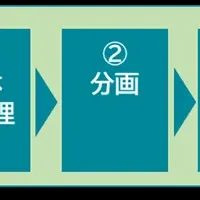
GC Biopharma's Hunterase Phase 3 Trial Shows Promising Results for Hunter Syndrome Patients
In a groundbreaking study, GC Biopharma, a South Korean biopharmaceutical firm, has revealed the results of its Phase 3 clinical trial for Hunterase (idursulfase beta), a potential treatment for Hunter Syndrome. This rare genetic disorder, predominantly affecting males, is characterized by iduronate-2-sulfatase deficiency, which hinders proper glycosaminoglycan (GAG) metabolism, resulting in serious health complications. Conducted at Samsung Medical Center, the trial involved 24 newly diagnosed patients who had not received prior treatments. Over the span of one year, the efficacy and safety of Hunterase were thoroughly assessed.
The trial's findings, published in the SCIE-indexed journal Genetics in Medicine, indicate that Hunterase significantly enhances patients' functional mobility. This was most notably demonstrated through the 6-Minute Walk Test (6-MWT), where those receiving treatment walked an average of 62.2 meters further than their placebo counterparts, who managed only a 7.3 meters increase. This stark contrast highlights the potential of Hunterase to not only improve mobility but also overall quality of life among patients.
Secondary endpoints also showed remarkable results. Notable reductions were recorded in urinary GAG levels, decreasing by 71%, alongside significant drops in heparan sulfate (HS) and dermatan sulfate (DS) levels at 89% and 88%, respectively. The study also recorded a reduction in liver and spleen volumes by 27% and 26%, showcasing Hunterase's effectiveness in mitigating organ enlargement, which is a common issue in Hunter Syndrome.
The safety profile of Hunterase was favorable, with most adverse events categorized as mild to moderate. Only a small fraction of patients (19%) showed neutralizing antibodies multiple times, a finding that stands in stark contrast to the 62.5% incidence observed with existing therapies, suggesting that Hunterase could provide a more sustained therapeutic effect for patients.
Professor Young Bae Sohn, the lead author from Ajou University, emphasized the significance of this trial, being the first Phase 3 study involving Asian patients to validate Hunterase's clinical efficacy. The results not only reflect improvement in metabolic markers but also in physical mobility and organ size normalization, signifying a comprehensive approach to managing Hunter Syndrome.
GC Biopharma’s Head of R&D, Jae Uk Jeong, expressed excitement over the encouraging trial results, highlighting the company’s commitment to innovating treatments that can substantially enhance the lives of Hunter Syndrome patients. Hunter Syndrome, affecting approximately one in a hundred thousand males, underscores the urgent need for effective early diagnosis and treatment, as severe cases lead to premature death before adulthood.
Currently, Hunterase competes with another treatment, Elaprase from Takeda. However, the results from GC Biopharma's Phase 3 study position Hunterase as a promising alternative, potentially changing the landscape of how this challenging disorder is managed.
GC Biopharma, formerly known as Green Cross Corporation, has an extensive history of developing and manufacturing plasma derivatives and vaccines. With over 50 years in the biological sector, the company's commitment to advancing healthcare continues to propel its growth and innovation, particularly in the field of rare diseases. With the recent launch of Alyglo™, GC Biopharma is poised to expand its footprint in global markets. For more information, visit GC Biopharma.
Trial Findings and Implications
The trial's findings, published in the SCIE-indexed journal Genetics in Medicine, indicate that Hunterase significantly enhances patients' functional mobility. This was most notably demonstrated through the 6-Minute Walk Test (6-MWT), where those receiving treatment walked an average of 62.2 meters further than their placebo counterparts, who managed only a 7.3 meters increase. This stark contrast highlights the potential of Hunterase to not only improve mobility but also overall quality of life among patients.
Secondary endpoints also showed remarkable results. Notable reductions were recorded in urinary GAG levels, decreasing by 71%, alongside significant drops in heparan sulfate (HS) and dermatan sulfate (DS) levels at 89% and 88%, respectively. The study also recorded a reduction in liver and spleen volumes by 27% and 26%, showcasing Hunterase's effectiveness in mitigating organ enlargement, which is a common issue in Hunter Syndrome.
Safety Profile and Patient Tolerance
The safety profile of Hunterase was favorable, with most adverse events categorized as mild to moderate. Only a small fraction of patients (19%) showed neutralizing antibodies multiple times, a finding that stands in stark contrast to the 62.5% incidence observed with existing therapies, suggesting that Hunterase could provide a more sustained therapeutic effect for patients.
Significance of the Findings
Professor Young Bae Sohn, the lead author from Ajou University, emphasized the significance of this trial, being the first Phase 3 study involving Asian patients to validate Hunterase's clinical efficacy. The results not only reflect improvement in metabolic markers but also in physical mobility and organ size normalization, signifying a comprehensive approach to managing Hunter Syndrome.
GC Biopharma’s Head of R&D, Jae Uk Jeong, expressed excitement over the encouraging trial results, highlighting the company’s commitment to innovating treatments that can substantially enhance the lives of Hunter Syndrome patients. Hunter Syndrome, affecting approximately one in a hundred thousand males, underscores the urgent need for effective early diagnosis and treatment, as severe cases lead to premature death before adulthood.
Currently, Hunterase competes with another treatment, Elaprase from Takeda. However, the results from GC Biopharma's Phase 3 study position Hunterase as a promising alternative, potentially changing the landscape of how this challenging disorder is managed.
About GC Biopharma
GC Biopharma, formerly known as Green Cross Corporation, has an extensive history of developing and manufacturing plasma derivatives and vaccines. With over 50 years in the biological sector, the company's commitment to advancing healthcare continues to propel its growth and innovation, particularly in the field of rare diseases. With the recent launch of Alyglo™, GC Biopharma is poised to expand its footprint in global markets. For more information, visit GC Biopharma.
Topics Health)










【About Using Articles】
You can freely use the title and article content by linking to the page where the article is posted.
※ Images cannot be used.
【About Links】
Links are free to use.